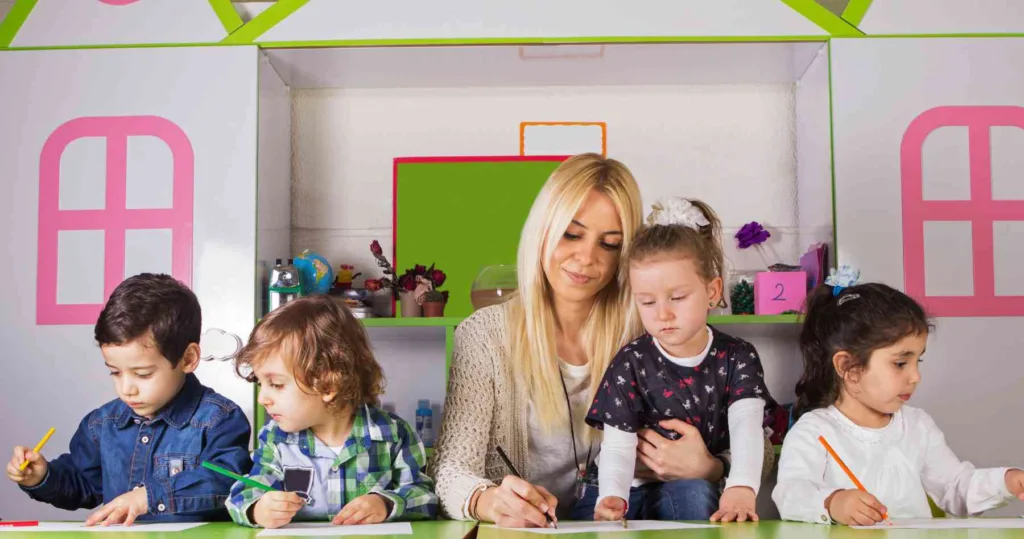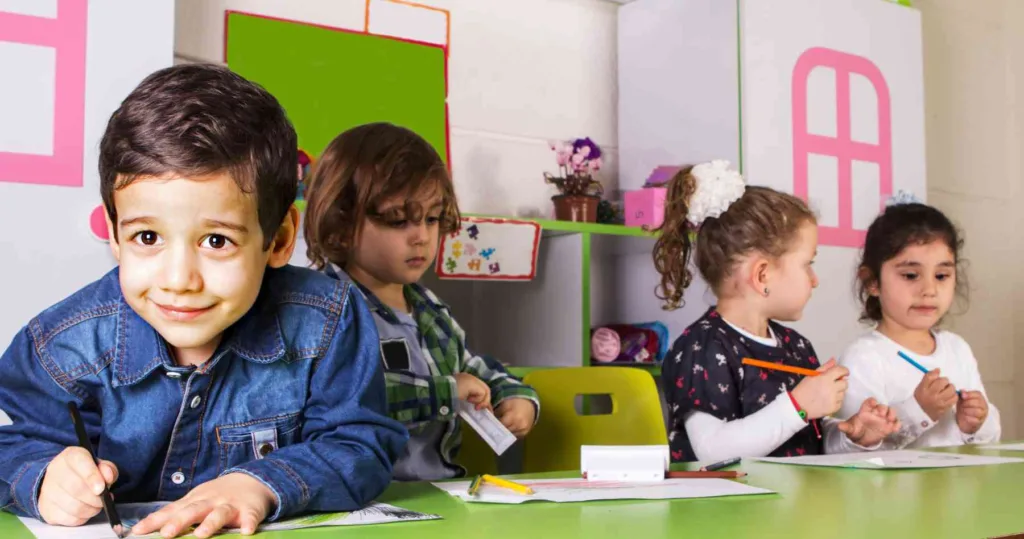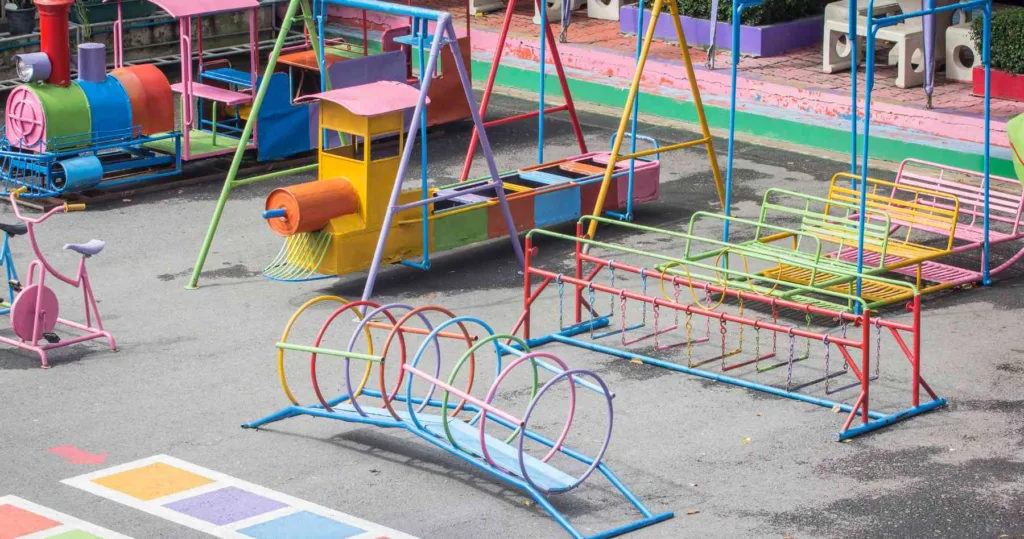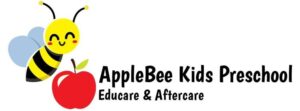Preparing Your Child for Preschool: Tips for a Smooth Transition
Sending your child off to preschool can be an exciting and emotional time for both you and your child. It marks the beginning of their academic journey and can also be their first time away from home for an extended period of time. As a parent, it’s natural to feel anxious about how your child will adjust to this new environment.
However, with the right preparation and mindset, the transition to preschool can be a smooth and positive experience for both you and your child. In this article, we’ll provide you with some tips on how to prepare your child for preschool, such as practicing separation, building routine, and introducing socialization.
We’ll also address common concerns that parents may have about their child’s adjustment to preschool. By following these tips and taking the time to prepare your child, you can help ensure that they have a successful and enjoyable experience in preschool.
Practice Separation
One of the most challenging aspects of starting preschool is the separation from parents or caregivers. For children who have never been away from their parents, the thought of being in a new environment with strangers can be scary. As a parent, you can help your child get used to separation by gradually increasing the amount of time they spend away from you. Start by leaving your child with a trusted family member or friend for short periods and gradually increase the time as your child becomes more comfortable. This will help your child develop the confidence they need to handle the separation that comes with starting preschool.
Build Routine
Young children thrive on routine and predictability. Establishing a daily routine can help your child feel more secure and prepared for preschool. Set regular meal and nap times, and create a consistent bedtime routine. This will help your child develop a sense of predictability and stability in their day, which can help reduce anxiety and stress.
Introduce Socialization
Preschool is a social environment where children learn to interact with their peers. As a parent, you can help your child prepare for this by introducing them to social situations. Arrange playdates with other children, take them to the park, or enroll them in a parent and child class. This will help your child develop the social skills they need to interact with their peers and make friends at preschool.
Talk about Preschool
Talking about preschool with your child can help them understand what to expect and reduce anxiety. Read books about starting preschool, talk about the fun activities they will do, and the friends they will make. This will help your child develop a positive attitude towards preschool and feel more confident about the transition.


Get In touch
Leave us a message
4 Claret Road, Table View, 7441
(021) 556 4146
office@applebeekids.com
Visit the Preschool
Visiting the preschool before the first day can help your child get familiar with the environment and feel more comfortable. Take a tour of the classroom, meet the teachers, and let your child explore the space. This will help your child feel more prepared for the first day of preschool and reduce anxiety.
Common Concerns and Solutions
As a parent, you may have concerns about your child’s adjustment to preschool. Here are some common concerns and solutions:
Separation anxiety: If your child experiences separation anxiety, practice separation gradually, and establish a goodbye routine. This can help your child feel more secure when saying goodbye.
Socialization: If your child struggles with socialization, arrange playdates with other children or enroll them in extracurricular activities. This will help your child develop the social skills they need to interact with their peers.
Homesickness: If your child misses home, pack a familiar object such as a blanket or stuffed animal in their backpack. This can provide comfort and remind them of home.
In conclusion, starting preschool is a significant milestone in a child’s life. By practicing separation, building routine, introducing socialization, talking about preschool, and visiting the preschool, you can help your child prepare for this transition. Remember, every child is unique, and some may require more time to adjust than others. With patience, love, and support, your child can have a positive experience starting preschool.
ExcellentBased on 28 reviews Trustindex verifies that the original source of the review is Google.
Trustindex verifies that the original source of the review is Google. Pieter Kotze2022-03-11Great pre-primary school in Table View, it has been there for many years and we are now on the verge of sending the 2nd generation there and although they have been around for years, the staff are current and up to date with the latest in childcare and early childhood education, peace of mind for sure...Trustindex verifies that the original source of the review is Google.
Pieter Kotze2022-03-11Great pre-primary school in Table View, it has been there for many years and we are now on the verge of sending the 2nd generation there and although they have been around for years, the staff are current and up to date with the latest in childcare and early childhood education, peace of mind for sure...Trustindex verifies that the original source of the review is Google. Gareth Bolt2021-08-20Jackie,Maude and Applebee team look after our little boy so wonderfully!Trustindex verifies that the original source of the review is Google.
Gareth Bolt2021-08-20Jackie,Maude and Applebee team look after our little boy so wonderfully!Trustindex verifies that the original source of the review is Google. Shakurah Hackley2021-08-20My son loves his teachers. They care for our kids and go the extra mile.Trustindex verifies that the original source of the review is Google.
Shakurah Hackley2021-08-20My son loves his teachers. They care for our kids and go the extra mile.Trustindex verifies that the original source of the review is Google. Nolu Mandindi2021-08-19My daughter been a student since 2019, her brother joined her in 2021, we couldn't be happier with the professionalism shown by the staff. The constant feedback from teachers on progress is on point.
Nolu Mandindi2021-08-19My daughter been a student since 2019, her brother joined her in 2021, we couldn't be happier with the professionalism shown by the staff. The constant feedback from teachers on progress is on point.
Books to Read to Your Children About Preschool
Reading books about starting preschool can help your child understand what to expect and feel more excited about the transition. Here are some books that you can read to your child about preschool:
“Llama Llama Misses Mama” by Anna Dewdney – This heartwarming book is about Llama Llama’s first day of preschool and how he misses his mama. As Llama Llama goes through his day, he slowly begins to realize that he can have fun and make friends at preschool. This book is a great way to help your child understand that it’s okay to miss their parents, but that they can still have a great time at school.
“The Kissing Hand” by Audrey Penn – This classic book is about a young raccoon named Chester who’s nervous about starting school. His mother gives him a special kiss on his hand that he can use whenever he needs a reminder of her love. This book is a wonderful way to reassure your child that you’ll always be there for them, even when you’re not physically present.
“Mouse’s First Day of School” by Lauren Thompson – This adorable book is about a little mouse who’s excited to start school but also a little nervous. As Mouse goes through his day, he meets new friends, learns new things, and begins to feel more comfortable in his new environment. This book is a great way to show your child that school can be a fun and exciting place.
“Wemberly Worried” by Kevin Henkes – This charming book is about a little mouse named Wemberly who worries about everything, including starting school. Wemberly is nervous about meeting new people, making friends, and being away from her family. However, as she goes through her day, she slowly begins to realize that school can be a great place to learn and grow. This book is a wonderful way to help your child understand that it’s okay to feel nervous, but that they can still have a great time at school.
“First Day Jitters” by Julie Danneberg – This hilarious book is about a teacher named Sarah Jane Hartwell who’s nervous about her first day of school. As Sarah Jane goes through her day, she realizes that she’s not the only one who’s nervous – her students are, too! This book is a great way to help your child understand that everyone feels nervous sometimes, but that they can still have a great time at school.
Reading these books with your child can help them see that they’re not alone in their feelings and that starting preschool can be an exciting and fun experience. It can also help your child feel more prepared and confident for the transition.

How to Prepare 3 Year Old for Nursery
Sending your 3-year-old to nursery can be an exciting but daunting prospect for both you and your child. Here are some tips on how to prepare your child for nursery:
Talk to your child about nursery – Explain to your child what nursery is and what they can expect to do there. Encourage them to ask questions and address any concerns they may have.
Start with short visits – Before your child starts nursery, take them for short visits to get them used to the environment. Stay with them during the first few visits, gradually increasing the time you spend apart.
Practice separation – Help your child get used to being away from you by gradually increasing the time you spend apart. For example, you could leave them with a trusted friend or family member for short periods of time.
Build routine – Establish a regular routine for your child that includes activities they will do at nursery, such as snack time and nap time.
Encourage independence – Help your child become more independent by encouraging them to dress themselves and use the toilet independently.
How to Settle a Child in Preschool
The first few weeks of preschool can be a challenging time for both you and your child. Here are some tips on how to settle your child into preschool:
Be positive – Your attitude towards preschool will influence your child’s attitude. Be positive and enthusiastic about the experience.
Practice separation – Help your child get used to being away from you by gradually increasing the time you spend apart. For example, you could leave them with a trusted friend or family member for short periods of time.
Build routine – Establish a regular routine for your child that includes activities they will do at preschool, such as snack time and nap time.
Introduce your child to their teacher and classmates – Help your child feel more comfortable in their new environment by introducing them to their teacher and classmates.
Encourage independence – Encourage your child to become more independent by encouraging them to dress themselves and use the toilet independently.
Preschool Preparation Activities
Preparing your child for preschool can be an enjoyable and educational experience for both you and your child. Here are some activities you can do with your child:
Read books about preschool – Reading books about preschool can help your child understand what to expect and feel more comfortable about the experience.
Practice counting and identifying letters and numbers – Preschools often focus on teaching basic math and literacy skills, so practicing counting and identifying letters and numbers can help your child feel more confident.
Play social games – Playing social games with your child, such as taking turns and sharing toys, can help them develop social skills that will be useful in preschool.
Do art projects – Doing art projects with your child can help them develop fine motor skills and creativity, which will be useful in preschool.
Play pretend preschool – Setting up a pretend preschool at home can help your child get used to the idea of going to preschool and practice the skills they will need.

